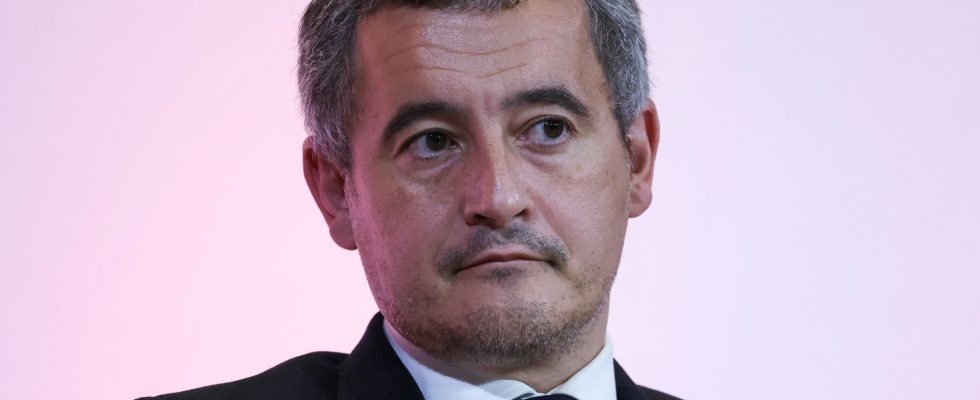The executive has been under pressure since Saturday evening, urged by the opposition to take measures. Gérald Darmanin demanded on Sunday evening that the authorities “can request an order for treatment” for a radicalized person being monitored for psychiatric disorders in order to prevent acts like that of the attacker of the Bir Hakeim bridge.
The Minister of the Interior spoke on TF1 after a meeting in Matignon devoted to security after this knife attack on Saturday evening in Paris which cost the life of a German-Filipino tourist and injured a British and a Frenchman. Armand Rajabpour-Miyandoab, a 26-year-old Franco-Iranian, was arrested after the attack.
The attacker “is an adherent of radical Islam and he is psychiatrically ill. He had stopped treatment at the request of certain doctors”, recalled Gérald Darmanin. “What undoubtedly needs to change – we saw it around the Prime Minister (Elisabeth Borne) – is that the public authorities, the prefects, the police can request, demand an order for care, which does not “That’s not the case today,” he continued.
A “failure” in the “psychiatric” follow-up of the alleged perpetrator
Stressing that the “police officers were not doctors”, he argued that they had “to manage people with psychotic disorders and adherents to radical Islam”. The Minister of the Interior insisted that France was “permanently under the influence of the radical Islamist threat”. “We must have an extremely firm criminal response,” he said.
On BFMTV and RMC, this Monday morning, Gérald Darmanin also estimated that there was “obviously a failure” in the “psychiatric” follow-up of the alleged author of the fatal knife attack. “There was clearly a psychiatric failure, the doctors considered on several occasions that he was better,” declared the Minister of the Interior. Armand Rajabpour-Miyandoab had been radicalized since 2015 and subject to a treatment order involving strict psychiatric monitoring and controlled by a coordinating doctor.
For his part, Olivier Véran indicated that the “medical, administrative and penal” course of the author of the knife attack on Saturday in Paris was “in accordance with what was prescribed and the state of the law” which raises the question of “adaptation of the law” according to the government spokesperson. “The administrative and penal courses for this individual were consistent with what was possible with the state of the law, that is to say the four years of prison, the obligation of psychiatric follow-up for three years, the surveillance at the long term”, declared Olivier Véran on RTL.
“This person was diagnosed with a psychiatric pathology and a follow-up obligation was put in place which was respected, that is to say three years of follow-up and there was always a link with the medical services,” he clarified.
The alleged perpetrator still in police custody
The custody of the alleged perpetrator of the fatal knife attack near the Eiffel Tower in Paris continues this Monday. A flagrant investigation was opened for “assassination and attempted assassination in connection with a terrorist enterprise” and “association of terrorist criminals with a view to preparing crimes against people”.
According to the first elements of the investigation, the suspect’s mother had indicated to the police last October that she was worried about her son – listed for Islamist radicalization (FSPRT) according to a source close to the investigation -, seeing that he “withdrew into himself”. This was indicated on Sunday by the anti-terrorism prosecutor, Jean-François Ricard, who clarified that he had pledged allegiance to the Islamic State group.
The police then tried to have him examined by a doctor and hospitalized, something ultimately impossible in the absence of problems, according to a source close to the case. His mother, moreover, did not want to request his forced hospitalization. A few days after his report, she assured that he was “doing better”, again according to the same source.
